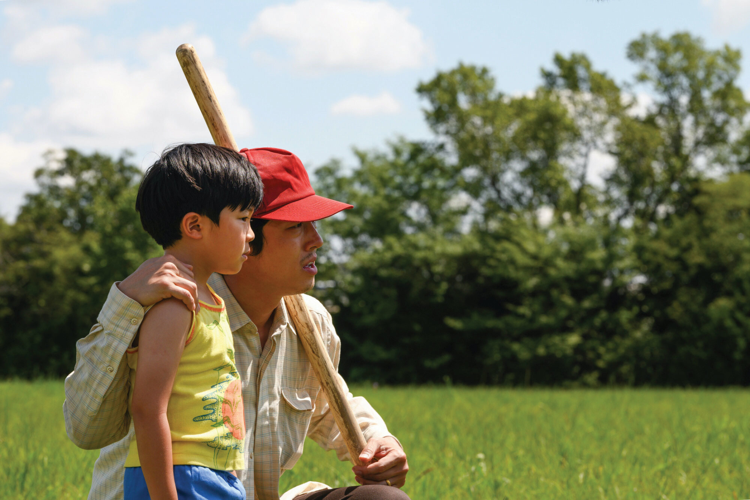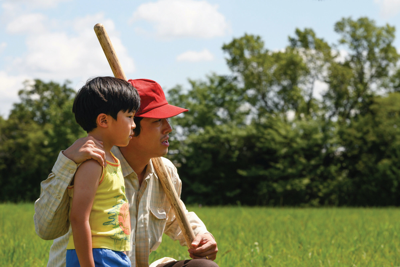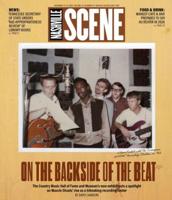Minari is a gentle burn of a film. The loudest thing about it, in fact, is just how much of an American story it is. The most recent in a string of much-needed tales of the West that take a new approach, it shows a different face than the ones we’ve become accustomed to seeing on screen, despite what our neighbors — and what we — look like.
A personal tale from Korean-American writer-director Lee Isaac Chung, Minari transports us to his childhood in Arkansas and his memories as a 6-year-old. Giving the well-tread territory of the American Dream a fresh perspective, Minari follows Jacob Yi (Steven Yeun at his most moving), who brings his family to Arkansas from California in the 1980s with the staunch belief that it’s here he and his wife Monica (Yeri Han) can make a better life for their young children, David and Anne. Land is cheap, so Jacob buys a large desolate plot where he also finds a rickety mobile home where the family can stay. Monica isn’t quite as enthused, but Jacob remains hopeful that he can build a farm where he’ll grow Korean produce, and bring an authentic taste of home to Ozarks grocers.
When Monica’s mother — a hilarious Youn Yuh-jung — arrives with chilli powder and anchovies mercifully in tow, she lightens everyone’s world. Well, except for David (a delightfully buoyant Alan S. Kim), a true child of immigrants who thinks she “smells like Korea” and is “not a real grandma” with her lack of baking skills.

Emile Mosseri’s score feels as if it’s weeping along with the willows that flank many of the film’s gorgeous green frames. There’s a calm, confident hum that reverberates between scenes like summer cicadas. It’s a relief that Chung waited years to finally put his past on paper, as maturity sharpens the way we remember.
Minari brought me back to my own father’s journey from Pakistan, where he built a chicken farm in his early 20s to provide for his parents and siblings, to Canada, where he worked a series of menial jobs. He had married my mother and brought her along with him in hopes of having his children see him succeed, much as Jacob does. My mother stayed by his side, wary at times like Monica. I watched David and Anne peer from behind door frames as their parents argue, blaming each other for various minutiae while harboring fear that their struggles might never be fruitful, that perhaps the West wasn’t their great savior — and I remembered years of my parents doing the same and struggling to understand what they were building for me and my siblings.
Today, in a beautiful bit of poetry, my dad owns a string of popular restaurants where he once washed dishes and swept floors, and where the No. 1 item on the menu is chicken. In a way, that’s our minari — the Korean water plant that grows stronger in its second season after it has died and been revived, and which surrounds the Yi farm with quiet promise.
Thanks to a generational resilience embedded in our DNA, my siblings and I see the fruits of my parents’ labor every single day, just as they dreamed we would. That kind of pain and passion is challenging to depict, but Minari does so with a special kind of sweetness.







